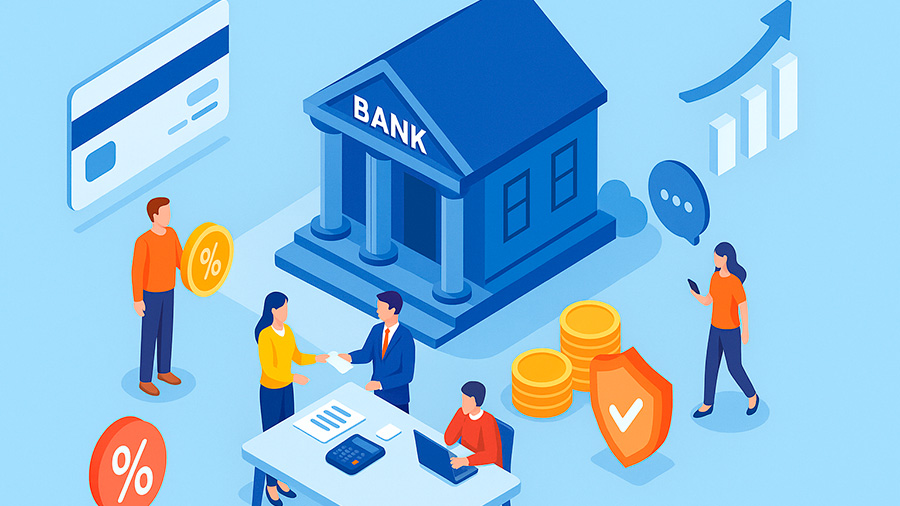
For many people, the world of lending feels like a maze. We borrow money for school, cars, homes, or unexpected expenses, and in return, we enter into a relationship with those who provide the funds. These providers are known as creditors, and they form a crucial part of the financial system. Yet, their role is often misunderstood. Some imagine creditors as faceless corporations, while others picture them as aggressive debt collectors. The reality is more nuanced. Knowing who creditors are, how they operate, and why they contact borrowers—can help anyone navigate borrowing with more confidence.
Who Creditors Really Are
At the most basic level, a creditor is any person, company, or institution that extends credit. This could be as simple as a family member lending money or as structured as a global bank providing multi-million-dollar loans. Creditors take on risk by allowing borrowers to use funds now with the expectation of repayment later. They play a dual role: fueling economic growth by giving people access to capital while also enforcing accountability by setting repayment terms. When people wonder why 855-787-6725 calls keep appearing, it’s often linked to creditors or their agents reminding borrowers of these obligations.
Types of Creditors
Not all creditors function the same way. Understanding the different types helps borrowers make sense of their responsibilities and opportunities.
Main Categories
- Personal Creditors: Individuals such as family or friends who lend money informally.
- Commercial Creditors: Businesses that extend credit through payment terms, like retailers offering store cards.
- Financial Creditors: Banks, credit unions, and lending companies that provide structured loans, credit cards, or mortgages.
- Government Creditors: Institutions like the IRS or student loan agencies, which collect debts owed to the state.
Why Creditors Contact Borrowers
Contact from creditors can feel intimidating, but it is often routine. Borrowers may ask why 855-787-6725 calls, assuming the worst, but many creditor communications are informational or administrative. They might be reminders, updates, or notices about account changes. Of course, when payments are overdue, calls can also serve as collection efforts. The important part is distinguishing between legitimate creditors and potential scams, ensuring that borrowers respond appropriately to protect their finances and credit reports.
Common Reasons Creditors Reach Out
- To remind borrowers of upcoming payment deadlines.
- To notify about account changes, such as interest rate adjustments.
- To confirm details when identity verification is required.
- To address overdue balances and discuss repayment options.
- To offer new financial products or services.
The Impact of Creditors on Credit Reports
Every action taken with creditors—payments made, payments missed, credit used—feeds into a borrower’s credit report. This report becomes the snapshot lenders, landlords, and sometimes employers rely on to make decisions. Understanding this relationship helps explain why consistent payments matter so much. Creditors don’t just provide funds; they also shape financial reputations. When missed payments or defaults occur, that’s when numbers like why 855-787-6725 calls might signal the involvement of collection efforts tied to credit reporting.
| Creditor Action | Effect on Credit | Example |
|---|---|---|
| On-Time Payments | Improves score, builds trust | Paying credit card bills consistently |
| Late Payments | Damages score, signals risk | Missing a loan payment by 30+ days |
| High Utilization | Lowers score, shows overreliance | Using 90% of available credit |
| Account Closures | May shorten credit history | Closing old credit cards after payoff |
| Defaults | Severe damage, may involve collections | Unpaid loans reported to agencies |

How to Handle Creditor Communications
Managing interactions with creditors is part of maintaining financial health. Not every call or letter is bad news. Still, it’s important to approach communications carefully. Answering questions like why 855-787-6725 calls matters because it ensures borrowers respond to real creditors while avoiding scams. Verifying caller identity, requesting written confirmation, and maintaining records of conversations are key steps in this process.
Tips for Managing Contact
- Always verify the caller by asking for written documentation.
- Keep records of payments and communications for your files.
- Do not share sensitive information without confirmation of legitimacy.
- Set up automatic payments to reduce reminders and avoid late fees.
- Know your rights under the Fair Debt Collection Practices Act (FDCPA).
Generational Views on Creditors
Different age groups perceive creditors differently. Younger people may view them as a necessary part of building independence, while older generations often see them as partners—or adversaries—in long-term financial planning. Regardless of perspective, creditors remain integral to how money flows through society.
| Generation | View of Creditors | Common Challenges |
|---|---|---|
| Gen Z | First exposure to credit, cautious curiosity | Short credit histories, learning repayment discipline |
| Millennials | See creditors as both opportunity and burden | Managing student loans, mortgages, and rising costs |
| Gen X | View creditors as financial partners | Balancing family needs with long-term credit health |
| Baby Boomers | Experienced borrowers with established views | Fixed incomes, medical debt, retirement concerns |
Why Creditors Matter to Economic Growth
On a broader scale, creditors fuel the economy. They provide the capital for businesses to expand, individuals to invest in education or housing, and governments to fund infrastructure. Without creditors, economic activity would slow dramatically. At the same time, they enforce discipline by expecting repayment, keeping the system balanced. Recognizing this dual role helps borrowers see creditors not as enemies but as essential participants in the economy, even when questions like why 855-787-6725 calls arise during daily life.
Navigating the Creditor Relationship
Creditors are not just lenders; they are partners in every stage of financial life. They provide opportunities while expecting accountability in return. Understanding who creditors are, why they make contact, and how their actions influence credit scores empowers borrowers of all ages. Calls from numbers such as why 855-787-6725 calls can feel stressful, but with knowledge, verification, and careful management, they become less intimidating. Ultimately, the creditor relationship is about balance—using the resources they provide responsibly while protecting one’s financial health and future.
